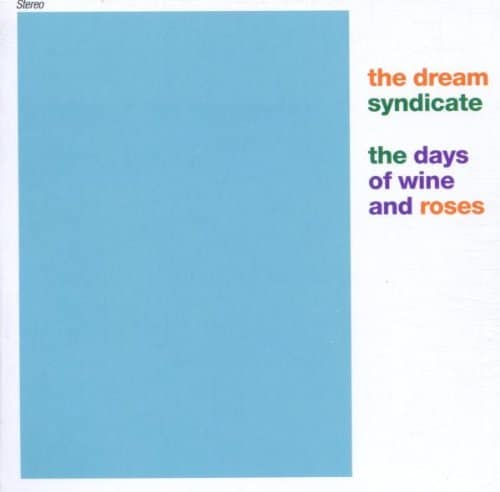A mention of Los Angeles in the 1980s might conjure images of The Decline of Western Civilization II: The Metal Years, but the city had more to offer than hair metal, empty Jack Daniel’s bottles, and looks that kill. Beyond the Sunset Strip, a new movement emerged featuring a handful of bands under the spell of 1960s jangle, fuzz, and psychedelia.
Known as The Paisley Underground, the scene included like-minded adherents The Three O’Clock, The Rain Parade, the rootsy Long Ryders, and The Bangs (later The Bangles). Curious listeners with a love for garage rock revivals should add these bands to their want-lists, but the uninitiated should begin with the scene’s flagship group, The Dream Syndicate, and its 1982 debut, The Days of Wine and Roses.
The suave stoicism of frontman Steve Wynn’s vocals and the mesmerizing guitar drone on the opening “Tell Me When It’s Over” feels like a rebirth of the Velvet Underground and Andy Warhol’s Exploding Plastic Inevitable. Drenched in feedback, tumbling guitar lines, and lyrics steeped in the nervous energy of compulsion and paranoia, TDoWR’s art-garage rock reminds punks and New Wavers just who had started the whole idea of a blank generation. And thanks to the interplay of Wynn and Karl Percoda, it was safe to be a guitar player again.
The shoulda-been hit single “That’s What You Always Say”, “When You Smile”, and the mini-epic “Halloween” threaten explosion with quiet/loud turf wars while “Until Lately”, complete with streetwise Jim Carroll-esque tough talk, nearly gives itself over to washes of feedback.
Part mic drop, part manifesto, the shambolic title track echoes Crazy Horse at their most dangerous and concludes the album with the finality of a car crash. TDoWR and future Dream Syndicate releases are variations on a theme that paved the way for future VU worshippers like Galaxie 500, Luna, Mazzy Star, and a host of others. After disbanding in 1989, the group reunited in 2012 and has released three new records since 2017, each cementing the band’s legacy. Check out 2020’s bold, improv-heavy The Universe Inside, a mid-career reinvention that’s as iconoclastic as their debut.
